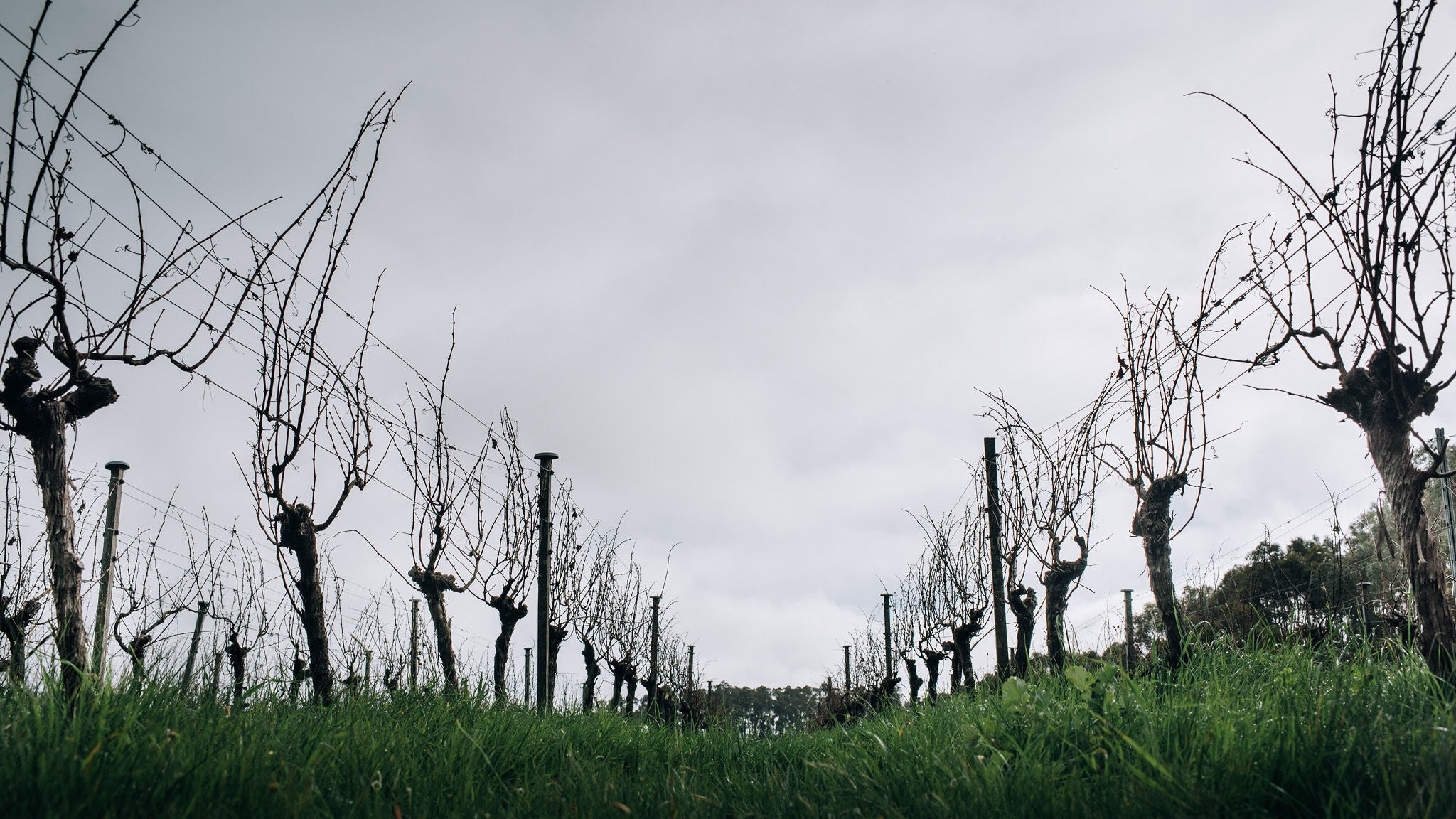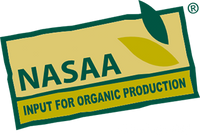A Green Revolution is taking place in Australia's Farming and Gardening Landscapes.
Soil stewards are increasingly choosing natural fertilisers over synthetic ones, whether on broadacre fields in Queensland or expansive fields in Melbourne. This trend reflects growing environmental consciousness, a desire for healthier produce, and widely available products at retail stores like Bunnings organic fertiliser ranges.
In this blog, we'll discover the various factors contributing to the explosion of organic fertiliser, explore the science behind it, evaluate popular products which are readily available, and provide actionable guidance for incorporating organics into your farm or garden.
The Rise of Organic Gardening in Australia
In the last decade, the modern embrace of organic principles has truly accelerated as people have supported sustainable produce over short-term yields. Concerning this, across the nation:
-
Community garden memberships have surged by over 30% since 2018
-
Sales data shows organic fertiliser purchases climbing 20% year-on-year at major retailers including Bunnings
-
Homegrown produce markets report a threefold increase in stall numbers over five years
This growth isn't fleeting. Consumers, driven by health, sustainability, and food security concerns, are transforming gardens into ecosystems. As this movement gains momentum, organic fertiliser shelves—including those at Bunnings—are selling out faster than ever.
Understanding Organic Fertilisers
Organic fertilisers originate from plant, animal, or mineral sources. Unlike synthetic NPK fertilisers, which deliver nitrogen (N), phosphorus (P), and potassium (K) in pure salts, organic materials release nutrients slowly as microbes break down complex compounds. Key characteristics include:
Nutrient Release: Microbial decomposition governs release rates, ensuring steady nourishment.
Soil Building: Organic matter improves structure, water retention, and aeration.
Biodiversity Boost: Beneficial microbes and earthworms thrive, forming a living soil web.
The Power of Slow Nutrient Release
The ability of organic fertilisers to sustainably release nutrients helps prevent sudden nutrient surges, which eventually lead to nutrient burn or leaching into waterways. The biological timing helps to preserve nutrients, alongside allowing sufficient time to break down complex carbon compounds in manures, bone meal, rock dustminerals and compost, which gradually free nitrogen, phosphorus, and other elements. A gentle feeding cycle reduces the risk of environmental contamination and aligns with plants' uptake patterns simultaneously.
For many Australian growers—especially those contending with heavy winter rains or sandy soils—the measured pace of nutrient delivery translates to greener foliage and deeper root systems over the long haul.
Soil Building and Biodiversity Enhancement
Organic fertiliser helps to rebuild the very fabric of the soil. Adding compost or aged manure helps with soil porosity; its ability to retain moisture is enhanced, and fosters aggregation that resists compaction.
Earthworms, predatory nematodes, and beneficial microbes thrive in healthy soil, creating a balanced ecosystem that naturally suppresses pathogens and pests. On the contrary, repeated applications of synthetic chemicals can harm the soil structure by depleting beneficial organisms gradually over time. By choosing organics, gardeners and farmers foster an intricate web of life beneath the surface—one that underpins plant health, carbon sequestration, and ecosystem resilience across Australia's varied climates.
Environmental Benefits of Going Organic
In a country like Australia, which is drought-prone and rich in biodiversity, switching to organic matter/fertiliser helps soil stewards or growers to drastically reduce synthetic chemical runoff, help protect waterways, and endangered species too. Organic matter helps lock atmospheric CO₂ into stable soil compounds. Also, avoiding synthetic chemicals invites bees, butterflies, and native insects essential for crop pollination and reproduction of wild plants.
Collectively, these environmental wins resonate with eco-conscious consumers and policymakers, propelling further growth in the organic sector.
Long-Term Economic Advantages
Organic fertilisers, particularly premium brands, might at first appear more expensive than their synthetic counterparts. However, the economics clearly favour organics when spread out across years of enhanced soil performance. Less irrigation, fewer remedial treatments, and fewer inputs in general are needed for healthy soils. While farmers frequently collaborate with local compost producers to reduce transportation expenses, home gardeners can save a lot of money by making their compost from kitchen scraps and garden clippings. At markets and farm gates, organic certification and the "homegrown" label can fetch higher prices.
Across the board, the shift to organics represents a strategic investment in soil capital rather than a mere line-item expense.
Local Sourcing and Premium Produce Returns
Organic fertilisers encourage local entrepreneurship and market uniqueness in addition to cost savings. Regionally composted materials are being packaged by urban farms and peri-urban businesses, offering freshness and a reduced carbon footprint. Community compost hubs in Melbourne, Brisbane, and Perth transform municipal green waste into gold for local gardens, creating circular economies. Selling produce grown on certified organic soil often yields 15-40% higher revenues at markets and through farm subscription boxes. The environmental philosophy and a strong business case for many producers are in perfect harmony, which is driving the quick growth of organic products in both big-box stores and independent merchants.
Key Types of Organic Fertilisers in Australia
There are many different types of organic fertilisers, and each has certain advantages. Perhaps the most common is compost, which mixes yard waste, food scraps, and occasionally animal manure to make a well-balanced feed and soil conditioner. Animal manures (sheep, cattle, and poultry) offer targeted nitrogen boosts, with poultry manures frequently promoted as a high-nitrogen organic fertiliser for green growth spurts. For flowering and fruiting crops, blood and bone meal provides concentrated protein and phosphate. Products made from rock dust, humates, seaweed andf fish provide minerals, organic growth promoters, and substances that reduce stress.
Finally, green manures and cover crops such as clover, lupins, and vetch fix atmospheric nitrogen while protecting bare soils from erosion and nutrient loss.
Deep Dive: Compost and Manures
Compost helps to improve soil structure while serving as a slow-release nutrient reservoir. It acts as a catch-all base layer. Proper composting—which means maintaining temperatures between 55–65°C—eliminates pathogens and weed seeds, creating a safe, versatile amendment. Manures, specifically fully aged, introduce additional nutrients and develop organic fertiliser properties that stimulate vegetative growth.
Poultry manure, in particular, offers one of the highest nitrogen concentrations among organic sources, making it a go-to for heavy-feeding vegetables like kale and broccoli. Blending compost with aged manures ensures balanced feeding: oxygenating soils while meeting specific crop demands. But one must be careful not to overdo it with poultry due to its high nitrogen content and therefore can at times be too much for some plants.
How to Choose the Right Organic Fertiliser
The first step in selecting an organic fertiliser is to conduct a soil test to measure the pH and nutrient levels. You can use at-home kits or local agricultural labs to determine whether your soil is lacking in trace minerals, phosphorus, potassium, or nitrogen. Armed with this knowledge, look for approximate N-P-K ratios on product labels; organic blends typically yield lower but balanced numbers when compared to their synthetic counterparts.
NPK synthetic fertilisers market an exact 20-10-10 formula, whereas organic fertilisers have more subdued labelling, such as 5-3-4 or 2-8-4, which reflect their slower release and increased micronutrient content. Do not just concentrate on high numbers .
When shopping at major retailers, it's important to understand that whilst convenient options like Bunnings organic fertiliser products are readily accessible, the quality can vary significantly. At Soil Dynamics, we encourage gardeners to become educated consumers who look beyond marketing claims to evaluate genuine organic quality and certification standards.
Understanding Organic Certification
While shopping for organic fertilisers—whether at Bunnings or specialist suppliers—it's valuable to understand what genuine organic certification means. In Australia, legitimate certifications include:
ACO (Australian Certified Organic) - Australia's leading organic certification body ensuring products meet stringent standards
SXC (Southern Cross Certifiers) - the newst kids on the block with high integrity and a thirst to helpt the industyr and you the consume.r
BFA (Biological Farmers of Australia) - Comprehensive organic product certification
These certifications aren't just marketing labels—they represent rigorous testing, regular audits, and strict adherence to organic production standards. Unfortunately, many products marketed as "organic" in mainstream retail environments, including some Bunnings organic fertiliser ranges, may lack proper certification despite their organic marketing claims.
The Soil Dynamics Approach to Quality Organics
At Soil Dynamics, we understand that not all organic fertilisers are created equal. We encourage Australian gardeners and farmers to:
-
Research products thoroughly before purchasing
-
Look for legitimate organic certification logos
-
Ask questions about production methods and certification status
-
Consider the long-term soil health benefits rather than just immediate convenience
Whether you're shopping at Bunnings for basic garden supplies or seeking premium certified organics from specialist suppliers, the key is becoming an informed consumer who prioritises genuine organic quality over marketing convenience.
Making Informed Choices
Here's what Soil Dynamics recommends when selecting organic fertilisers:
Research Before You Buy: Don't assume that "organic" on the label means certified organic. Take time to investigate the brand and their certification status.
Look for Certification Logos: Only purchase products that display legitimate organic certification marks like SXC ,ACO, or BFA.
Ask Questions: Don't hesitate to contact manufacturers directly about their certification status and production methods.
Consider Specialist Suppliers: Often, dedicated organic suppliers offer higher-quality, properly certified products than big box stores like Bunnings.
Misconceptions and Promise of Precision Organics
Many myths are prevalent despite the proven effectiveness of organic inputs. Some claim that organic fertilisers work too slowly to matter, but if you feed your garden pure organic fertiliser on a fixed schedule, the plants receive continuous nutrition throughout seasons—avoiding unexpected nutrient spikes or hazardous burn from chemical feeds. This also helps save costs over the long period. Organic fertilisers help soil retain water better, require less irrigation, and protect from pests and harmful weeds from impacting plants. Organinc fertilisers build a strong foundation loingterm .
The growing importance of organic fertiliser is expected to boost developments in areas of regular organic regimes, microbial inoculants, and biochar-compost blends to support Australia's organic industry. Further, the use of technology and digital tools to aid growers with soil sensors to be able to monitor health, understand feed timings, and maintain growth.
Conclusion
Every day more Australians are shifting to organic fertilisers to protect soil and embrace healthy growing practices. While convenient retailers like Bunnings make organic products more accessible to mainstream gardeners, Soil Dynamics believes that truly sustainable growing requires understanding the difference between genuine certified organics and products that simply carry organic-inspired marketing.
Whether you're building a full-scale commercial garden, nurturing a backyard orchard, or filling pots on your balcony, going organic has numerous benefits—such as tastier harvests, fewer chemicals, and a healthier planet. The key is making informed choices about the organic fertilisers you use, looking beyond convenience to prioritise genuine quality and certification.
By choosing properly certified organic fertilisers—whether from Bunnings when they stock certified products, or from specialist suppliers like us —you're investing in long-lasting soil health that supports both your garden and Australia's natural ecosystems. It's time to embrace truly organic growing practices that deliver real results for generations to come.





